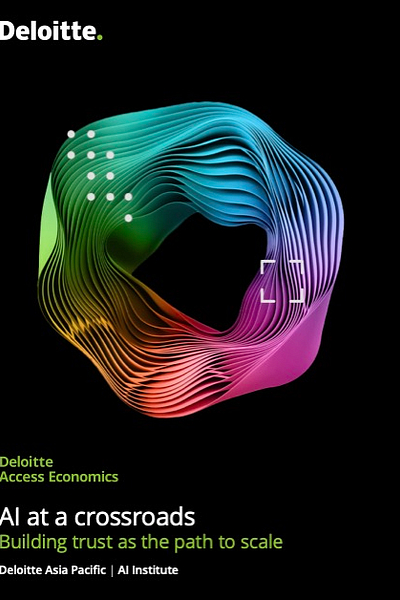How to Scale AI in APAC through Trust, not "AI Factories"
AI is at a crossroads and must choose between high-speed growth and trust
This is my daily post. I write daily but send my newsletter to your email only on Sundays. Go HERE to see my past newsletters.
HAND-CURATED FOR YOU
Deloitte Asia Pacific with an impressive paper that is devoid of hype and states clearly that “trust is the path to AI scale.”
This couldn’t be more true, and it is interestingly contrary to another big announcement yesterday impacting APAC from AI chip manufacturer Nvidia that it was building an “AI Factory.”
Nvidia is building its new 10,000-chip “AI Factory” with Foxconn in Taiwan. The Factory is a purpose-built, optimized infrastructure for developing and deploying AI at scale. The end goal is to help companies attain “faster time to value.”
While the AI Factory may be a moneymaker, it is taking AI and its users down a path of ever-more chips, ever-faster build times, and "cookie-cutter” solutions to business problems that may require “made to measure.”
Most importantly, it does not take AI down the path of increased trust, which, according to Deloitte APAC, is the key to broader AI adoption.
Is there a right path to take?
Deloitte's survey of 900 APAC executives focuses on governance to build trustworthy AI—in other words, AI that is transparent, fair, robust, respectful of privacy, responsible, and accountable.
According to a Deloitte survey, 51% of leaders believe that good governance improves the trust of output with employees, improving usage, and 45% believe it improves customer reputation.
Will Nvidia’s AI factory give us this? Maybe. Nvidia may argue that it recommends good governance when it builds an AI system. Since its mission is to get AI into production fast, I don’t see a lack of AI governance as a holdup.
As a “factory,” it is more likely to produce commoditized AI systems that get AI out of the door and into production with poorly integrated AI governance. Trust be damned when confronted with production.
The benefits of governance in building AI trust among employees and customers are clear, and no AI Factory can touch that.
We deserve a future focused on AI Trust, not AI factories.
👉Top Five Benefits of Trustworthy AI
🔹 Higher levels of trust in the outputs or results from AI solutions
Half (51%) of senior leaders selected this as a primary benefit of good governance. A separate study found that transparent AI systems improve users’ trust by 30%, thereby increasing the likelihood of adoption and utilisation.
🔹 Greater use of AI solutions across the organisation
Good governance is associated with organisations that are three times or more likely to use AI in customer service, marketing and sales, operations and production, and research and development (R&D). Other statistics show a 28% increase in the number of users of AI for the average organisation.
🔹 Improved reputation among customers
Customers are increasingly concerned about ethical considerations and data privacy when it comes to AI. In fact, only half of consumers feel that the benefits realised from online services outweigh data privacy concerns. Having effective AI governance demonstrates a commitment to these values, enhancing the organisation’s reputation.
🔹 Greater realisation of productivity benefits from AI solutions
Effective governance frameworks can make AI solutions even more productive, with 44% of senior leaders reporting higher productivity gains. Other studies showed that an extra 15 points on the Trustworthy AI Index score is associated with 4.6 percentage points higher revenue growth, even after controlling for the level of AI use.
🔹 Faster deployment of AI solutions across the organisation
There can be a misconception that AI governance can lead to internal business red tape, consequently slowing down AI adoption in an organisation. Yet, effective AI governance can streamline the deployment of AI solutions by establishing clear procedures and controls.




